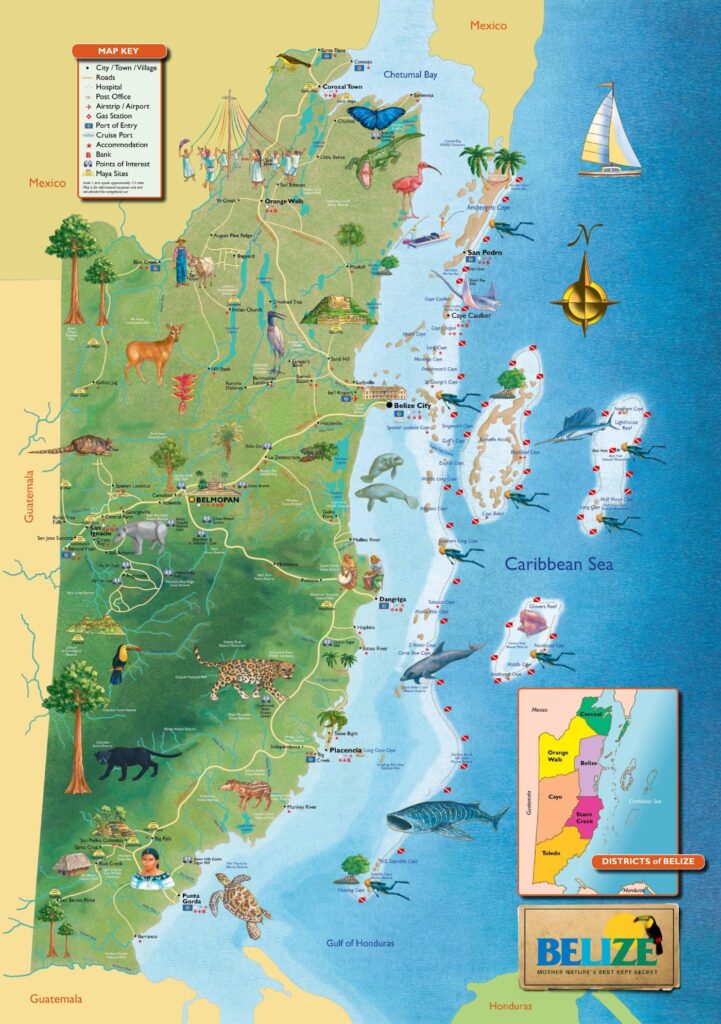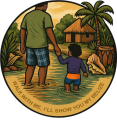Belize Laws for Tourists: Simple Rules to Keep Your Trip Easy
Walk with me for a moment. When you visit Belize, the law isn’t something to fear — it’s just the set of ground rules that help keep this country alive, safe, and beautiful. Most visitors never run into trouble here, but I’ve seen how one small misunderstanding — a shell in a backpack, an overstayed visa stamp — can turn a good trip into stress.
So here are the basics, straight from someone who lives and works here.
Entry & Immigration Requirements
Before you even step off the plane, there are a few requirements to keep in mind:
- Passport – Must be valid at least 3 months beyond your arrival date.
- Return Ticket – Required to show you plan to leave Belize.
- Funds – You may be asked to prove you can cover your stay.
- Visa Rules – Most visitors don’t need a visa for stays up to 30 days. Extensions are possible at Immigration offices for a monthly fee.
- Departure Tax – Already included in most flight tickets. If you’re leaving by land or water, expect to pay this tax in cash.
👉 Official Immigration Department
Money Matters
- The Belize Dollar (BZD) is fixed at $2 BZD = $1 USD by law.
- You can bring up to $10,000 BZD equivalent (about $5,000 USD) without declaring. Anything above must be declared at Customs.
- Both Belize and U.S. dollars are accepted everywhere, though sometimes you’ll get your change mixed.
Alcohol and Drinking
- The legal drinking age is 18.
- Drinking on the street or in public spaces is technically against the law, even if you see it happening casually. Stick to licensed bars and restaurants.
- Don’t drink and drive. Roadside checkpoints are common, especially on weekends, and penalties are serious.
Drugs and Substances
- Up to 10 grams of cannabis is decriminalized — but only for private use in your residence.
- Public smoking, carrying larger amounts, or trying to bring cannabis across borders is illegal.
- Hard drugs (like cocaine or meth) carry severe penalties and jail time.

Respect for Nature and Heritage (It’s the Law Here)
This one is close to my heart. Belize’s environment is not just scenery — it’s survival.
- Don’t step on coral. The reef is alive, and breaking it is illegal.
- Catch and release – Tarpon, bonefish, and permit are protected by law. If you sport fish in Belize, they must be released.
- Closed seasons – Lobster and conch have government-set seasons. Eating or selling them out of season is illegal.
- No shells, starfish, or artifacts. Taking them from the sea, ruins, or caves is prohibited.
- Protected species – Manatees, turtles, and scarlet macaws are legally protected. Don’t buy souvenirs made from them.
- Leave no trace – Littering in reserves, rivers, or national parks can result in fines.
Flying Drones
- Flying a drone in Belize requires permission from the Department of Civil Aviation.
- Tourists usually need to apply through a licensed tour operator or production company before arrival.
- Flying without permission can lead to confiscation and fines
On the Road
- Drive on the right-hand side.
- Seatbelts are required.
- Speed limits: 25 mph in towns, 55 mph on highways.
- Police checkpoints are routine. They’ll ask for your license, insurance, and sometimes your passport.
Immigration Rules Once You’re Here
- Tourists receive a 30-day entry stamp when they arrive. Extensions are available at Immigration offices for a fee.
- Don’t overstay your visa — fines or detention can follow.
- Your passport must remain valid for at least six months beyond your stay.
Conduct and Courtesy
- Public disorder, indecent exposure, or offensive language can lead to charges.
- Same-sex relationships are legal, but outside tourist hubs, public affection may still draw stares.
- Always ask before photographing people, especially children.
- Respect police, military, and rangers — they’re here to keep order and protect Belize’s resources.
My Word to You
Belize isn’t a hard country to travel in. Our laws are mostly common sense — protect the reef, respect the culture, keep your papers in order.
The times I’ve seen visitors run into problems, it wasn’t crime or danger — it was small slips. A conch shell tucked into a suitcase. A drone flown without asking. A visa stamp forgotten until airport day.
If you keep these basics in mind, the law here won’t get in your way. Instead, it’ll feel like what it is: a framework that keeps Belize alive for all of us.
Walk with me, I’ll show you my Belize — and the law will simply be part of the journey that keeps it safe and waiting for you.
Belize Tourist Law FAQs
Do I need a visa to visit Belize?
Most visitors don’t need a visa for stays up to 30 days. You’ll get a 30-day entry stamp at the airport or border. Extensions are possible at Immigration offices for a monthly fee.
Can I bring U.S. dollars to Belize?
Yes. U.S. dollars are widely accepted and fixed by law at $2 BZD = $1 USD. You can bring up to $10,000 BZD equivalent (about $5,000 USD) without declaring.
Do I need a fishing license?
Yes, unless you’re with a licensed tour operator. For sport fishing, catch-and-release is mandatory for tarpon, bonefish, and permit.
Can I drink alcohol on the beach?
The legal drinking age is 18. Drinking in public spaces (like streets and parks) is technically prohibited, but on the beach and in tourist areas it’s often tolerated if you’re respectful.
Can I fly my drone in Belize?
Not without permission. You need approval from the Belize Department of Civil Aviation, usually applied for through a licensed tour operator or film company.
What happens if I overstay my visa?
You may be fined or, in some cases, detained. Always check your stamp date and apply for an extension if you plan to stay longer.
Can I take shells, coral, or artifacts home?
No. Removing shells, starfish, corals, or Maya artifacts is illegal and can result in fines at customs.
💡 If this post helps you travel smoother, share it. It’s not about rules for the sake of rules — it’s about respect, survival, and making sure the Belize you came to see is still here for the next traveler too.

